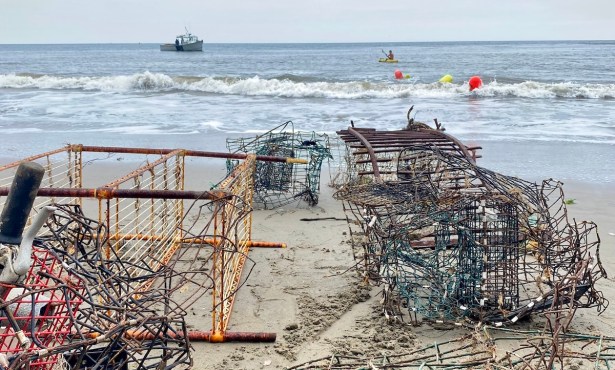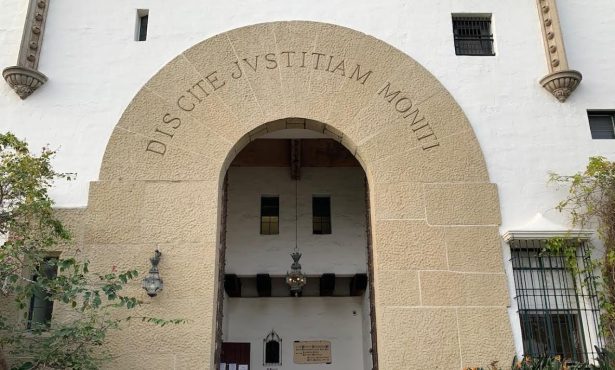1/9 Repeat? ‘Nobody Knows!’
UCSB Geologist Says Predictions Are Purely Guesswork
With a bombastic speaking style that belied the essential ambivalence of his message, UCSB geologist Ed Keller was clear about one thing Monday night: No one knows whether heavy winter rains will bring another debris flow crashing down on Montecito. “The truth is, folks, we don’t know,” declared Keller at a community forum hosted by the Urban Creeks Council at Montecito Union School. Debris flows capable of propelling boulders 30 miles per hour and elevating the mud line by as much as 20 feet are rare occurrences. Yes, there are still plenty of rocks, boulders, and fine soil perched atop the hills, he acknowledged, but, he asked, “Is it enough?” Anyone who says they know, he warned, “is just guessing.”
Although Keller is a dyed-in-the-wool academic, his question was anything but. A group of prominent Montecitans is proposing to buttress the upper reaches of Montecito’s downslope creek channels with giant steel nets, as is done on Catalina Island and at Camarillo Springs. With El Niño storms predicted, they argue the steel netting makes sense as a temporary emergency measure. They hope to have it installed by December. Keller said such netting “might” make sense, but Natasha Lohmus, a biologist with the California Department of Fish and Wildlife, described it as “gill nets for mammals.” Lohmus noted that the five creeks that empty into Montecito are all designated as habitat for the federally endangered steelhead trout. Likewise, she argued, creek beds provide crucial cover for smaller animals, and riparian environments are crucial for birds.
County Flood Control czar Tom Fayram, also on the panel, said the steel nets would not interfere with any of the county’s debris basins, but otherwise reserved his outrage for issues of debris disposal. The federal government spent more than $100 million hauling rocks and sediments deposited during the debris flow of January 9 to Buellton and Fillmore, Fayram exclaimed, rather than dumping it in the ocean. Fayram warned that the practice was neither economically nor environmentally sustainable and needed serious rethinking.



